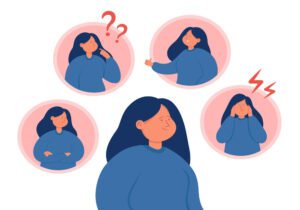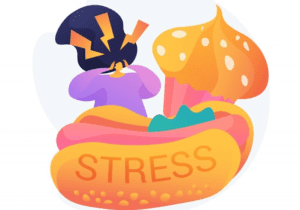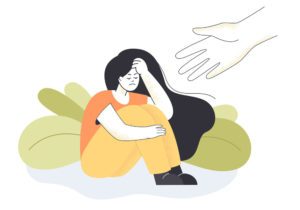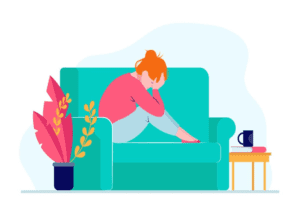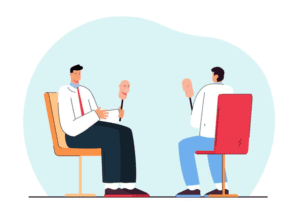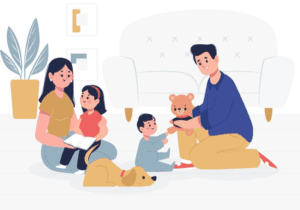What to Expect at Your First Family Therapy Session
This article has been researched and written by Nayla Daou. AI has not been used in producing this article.
Are you feeling a bit nervous about your first family therapy session? It’s very common to feel a bit apprehensive before starting any type of therapy. Therapy involves sharing personal information and intimate details about your life. It’s only natural that this vulnerability can leave you feeling apprehensive about your first session.
Here’s what you can expect at your first family therapy session.
What to Expect – The Basics of Family Therapy
When a member of the family is struggling, it tends to impact the entire family. Family therapy is a form of counseling in which a group attends sessions together in order to address specific concerns that impact the psychological health of the entire family.
During your family therapy sessions, you may address specific issues, such as a conflict between children and parents, the impact of a recent death or loss in the family, financial or marital problems, or the impact of a mental illness or substance abuse on the entire family. Sessions typically last about 50 minutes to an hour, once or twice a week. However, your treatment plan will depend on your family’s specific needs.
- During family therapy, you can:
- Discuss and examine your family’s ability to resolve conflicts
- Discuss and examine your family’s ability to communicate (such as their ability to express emotions and thoughts in a positive and healthy manner)
- Examine family rules, roles, and behavior patterns to pinpoint issues that contribute to conflict (as well as ways to work through these issues)
- Identify your family’s strengths and weaknesses
- And much more
- Paperwork and Family History
When you first arrive at your family therapy session, it will feel similar to a regular medical appointment. You’ll be asked to sign in, sit in a waiting room, and wait for someone to call your name for your appointment. While you are waiting, you may be asked to fill out paperwork, to include:
-
- Medical history for all participants (including current medications)
- A questionnaire about your symptoms
- Insurance forms
- Medical consent forms
- Therapist-patient agreements
- Record release forms
If you feel uncomfortable answering any question on paper, you may wait to answer verbally during your session. Depending on the requirements of your therapist, you may have the option to complete this paperwork at home before your first visit.
Your First Family Therapy Session
Your first family therapy session will be slightly different from your future visits. This initial session is designed to help your family become acquainted with your therapist, their process, and to gain an understanding of how to proceed.
During this first session, your therapist may ask you questions to gain a better understanding of your needs. For example, what brought you to therapy? What are your symptoms? What are you concerned about in your life? Additionally, they may ask you questions about each family member’s history, including childhood, education, relationships (family, friends, marriage problems), medical history, etc.
By the end of your first session, you and your therapist will come to an agreement about the length of your treatment, methods to be applied, as well as the ins-and-outs of patient confidentiality. Please keep in mind that psychotherapy typically requires multiple visits. You should not expect an instant solution to your concerns during the first visit. Future visits will be more therapeutic in nature. For example, in your subsequent sessions, you may explore a specific symptom, concern, or past trauma mentioned during your first session.
At ClearMinds, we believe that with the right support, we all have the potential to live happy and fulfilling lives. Our family psychology practice in Dubai is dedicated to helping clients and families achieve their collective mental health goals.
Contact a member of our team to learn more about how family therapy can help you and your loved ones. If you and your significant other could benefit from couples therapy, we are here to help also.
5 Simple Mental Health Practices for Your Everyday Life: Nurturing Your Body & Mind
In today’s fast-paced world, it’s becoming increasingly evident that we need to place our mental health at the forefront
Ways to Reduce Anxiety in 2024
As we say farewell to 2022 and usher in the New Year, we look towards the future. With New Year’s resolutions on the docket, many of us are striving to achieve a calm life …
Navigating Compassion Fatigue in the Digital Age: A Call to Prioritize Mental Well-Being
Amid the constant stream of information and images that flood our screens, the toll on our mental well-being can be …
The Link Between Anxiety and Overeating
All of us have encountered moments of stress and unease throughout our lives. These feelings of anxiety not only bring…
10 Steps To Fix A Toxic Relationship
Every relationship has its fair share of ups and downs, but when toxicity creeps in, it can become a serious challenge. Toxic relationships can be emotionally draining and detrimental to our overall …
Exploring the Benefits of EMDR Therapy for Anxiety and Depression
Anxiety and depression are two of the most common mental health disorders worldwide, affecting millions of people every year. While traditional talk therapy and medication can be …
Health Effects of Untreated Depression
It’s very common to feel sadness at one point or another in our life. Depending on your specific circumstances, you may even feel …
Psychologists vs. Psychiatrists – What’s the Difference?
Clients shouldn’t have to jump through hoops to understand who the perfect candidate is for treating their emotional and/or behavioral struggles. Yet, understanding the type of provider you should see during …
Gentle Parenting: What is it and How to Try it Yourself
When it comes to raising children, no one has all the answers. Every parent and child have unique challenges and needs. Navigating these individual circumstances along with ever-changing environments, such as school …
How to Improve Your Relationship with Your Children – A Psychologist’s Guide
The modern family’s lifestyle leaves us shuffling from school to sports practice, family events, visiting friends, and everything in between. As society evolves to become more on-the-go and technologically advanced, w…



